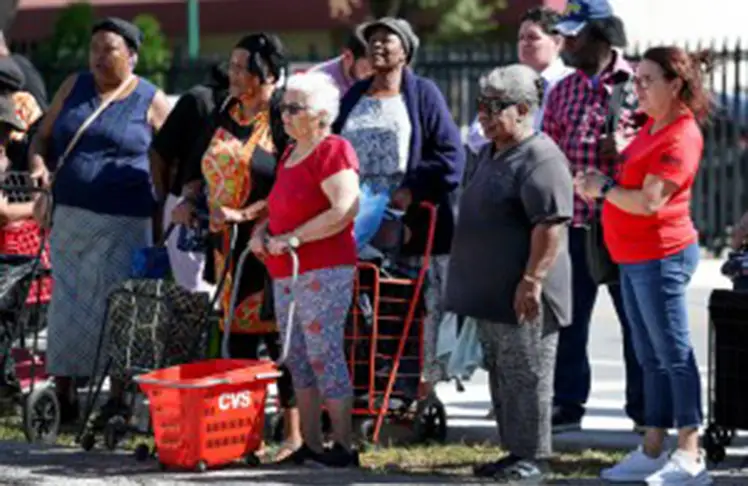
Just hours before the benefits were about to lapse, two federal judges ruled Friday that theTrump administration must use emergency funds to pay for the Supplemental Nutritional Assistance Program, also known as SNAP, during the ongoing government shutdown.
However, the judges — one in Massachusetts, the other in Rhode Island — allowed the administration to decide whether to fully fund the program for November or to provide partial payments.
SNAP helps 1 in 8 Americans buy groceries every month. This includes just over 10 million Black people, and the average payment is $187 a month.
The U.S. Department of Agriculture announced that it would freeze payments to SNAP as of November 1, stating, “the well has run dry” and blaming Democrats for their role in the shutdown. Republicans need votes from across the aisle to fully fund the government for the next fiscal year. But Democrats want Republicans to rescind cuts made to Affordable Care Act subsidies.
“Irreparable Harm”
By law, however, SNAP has emergency funds set aside for unplanned situations. The roughly $5 billion in contingency funds can be used to help low-income households, including many disabled and elderly individuals, avoid going hungry.
Earlier this week, Democratic state attorneys general, governors from 25 states and the District of Columbia, sued the administration over the pending SNAP lapse. They argued the federal government is legally required to keep the program running.
The Trump administration had argued that USDA didn’t have the authority to pay the benefits unless Congress passed a spending bill to end the government shutdown that began on Oct. 1. The administration had removed a copy of the plan that has historically existed to fund SNAP during a shutdown or other lapse from its website.
A separate lawsuit filed by the National Council of Nonprofits and a coalition of local governments, community- and faith-based nonprofit organizations, small businesses, and workers’ rights organizations filed suit in the U.S. District Court for the District of Rhode Island on Thursday. National nonprofit organizations triggered Friday’s ruling.
U.S. District Judge John McConnell in Providence ruled that the administration’s decision not to use the contingency funds for November’s benefits was arbitrary.
“There is no doubt, and it is beyond argument that irreparable harm will begin to occur if it hasn’t already occurred, in the terror it has caused some people about the availability of funding for food, for their family,” McConnell said.
He said that if there is still a shortfall, the USDA should determine if money from a separate fund with $23 billion could be used, as congressional Democrats have suggested.
Benefits Will Likely Be Delayed
The legal rulings may not prevent a delay in November benefits since it can take more than a week for many states to complete the process of reloading EBT cards. And the administration could still decide to appeal the judges’ rulings.
Advocates had begun sounding the alarm earlier this month about potential interruptions to SNAP. Several states have created speedy funding processes for food banks and efforts to get some funds loaded onto the SNAP debit cards.















